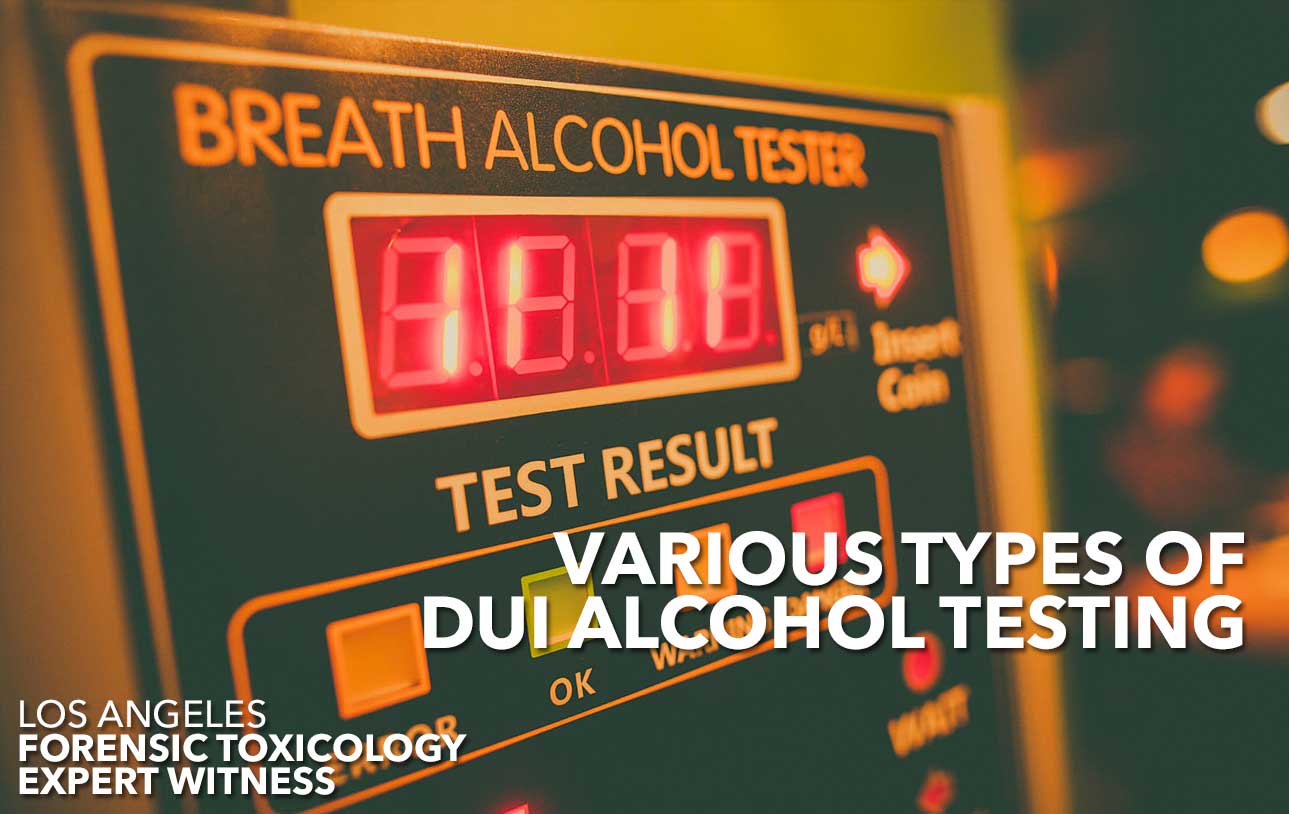Various Types Of DUI Alcohol Testing

In the state of Los Angeles, driving under the influence (DUI) of alcohol or other intoxicants, such as drugs, is considered a criminal offence. However, in order to prosecute someone or charge someone for DUI, you need to prove that the person was actually impaired while driving. There are different types of alcohol testing used to determine if someone was above the legal alcohol limit while they were driving or when the accident occured.
The four different ways that blood alcohol concentration can be measured are as follows:
-
Field Sobriety Tests (FSTs)
A field sobriety test is when an officer tests a variety of different functions in someone they suspect might be under the influence. This is often the first step in determining whether someone is DUI of alcohol. FSTs include testing the driver’s balance, cognitive abilities and coordination. Officers may ask the person to perform tasks such as standing on one leg or walking in a straight line. Additionally, the person may be asked to follow a pen from side to side to test for jerky eye movements.
Pros:
- Easy to perform and train officers to use
- Requires no special equipment
- Convenient
- Quick screening tool for DUI
Cons:
- Is a subjective measurement of intoxication
- Does not prove whether someone is over the legal BAC limit
-
BAC Breath Test
A breath or breathalyzer test is one of the most common ways in which police and traffic officials can test a person’s BAC. The basis of this test is how much alcohol is in a portion of exhaled air. It is performed by simply exhaling a full chest of air onto a device which then measures the level of alcohol in the air, and indirectly in the blood. Because of its level of inaccuracy, it is not the choice of test if presenting a case in court.
Pros:
- Easy to perform and train officers to use
- Convenient
- Can easily be done at traffic stops or road blocks
Cons:
- Not very accurate measurement
- Results vary from person to person depending on how fast they breathe, their body temperature and how long after they’ve had their last drink
-
BAC Blood Test
A BAC blood test is the most accurate way of measuring the amount of alcohol in a person’s body. In the United States, consent is required to have your blood drawn and tested, however refusing to have a blood test may lead to legal consequences, such as having the suspension of your driver’s license. However, the blood alcohol test can be contested in a court by a defense lawyer. They may argue that the blood sample was not immediately taken to the lab to have the test performed and therefore allowing the blood to either coagulate or decompose which can lead to a false high blood alcohol.
Pros:
- Most accurate test
- Not difficult to carry out in a lab
Cons:
- Requires someone that knows how to take blood
- Requires a lab to perform the test
- Results may vary depending on how long it took for the sample to be tested
-
BAC Urine Tests
BAC urine tests are typically the least accurate types of tests that you can perform to determine whether someone is driving under the influence. Because of this reason, urine tests are not often used to determine whether someone was driving under the influence. They are typically only used when blood or breathalyzer tests are not available. It is very similar to the blood tests in terms of the way the lab processes these sample to determine what the blood alcohol concentration is.
Pros:
- Does not require drawing blood
- Inexpensive test
Cons:
- Cannot be done at road blocks
- Requires a lab to perform the test
- Inaccurate
If you require an expert forensic toxicologist to help you with a DUI court case, Okorie Okorocha is the expert witness and you are looking for! Contact us at (800) 285-1763!




